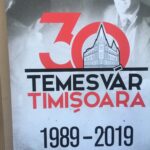Timişoara and the Romanian Revolution of 1989 – and how László Tokes rewrote history.
At the end of a moving Service, at the Calvinist church in the Romanian city of Timişoara, I laid a wreath outside the church, with Zsolt Nemeth of the Hungarian Parliament. At least 40 pro democracy campaigners from Timişoara lost their lives in the campaign to end the country’s dictatorship.
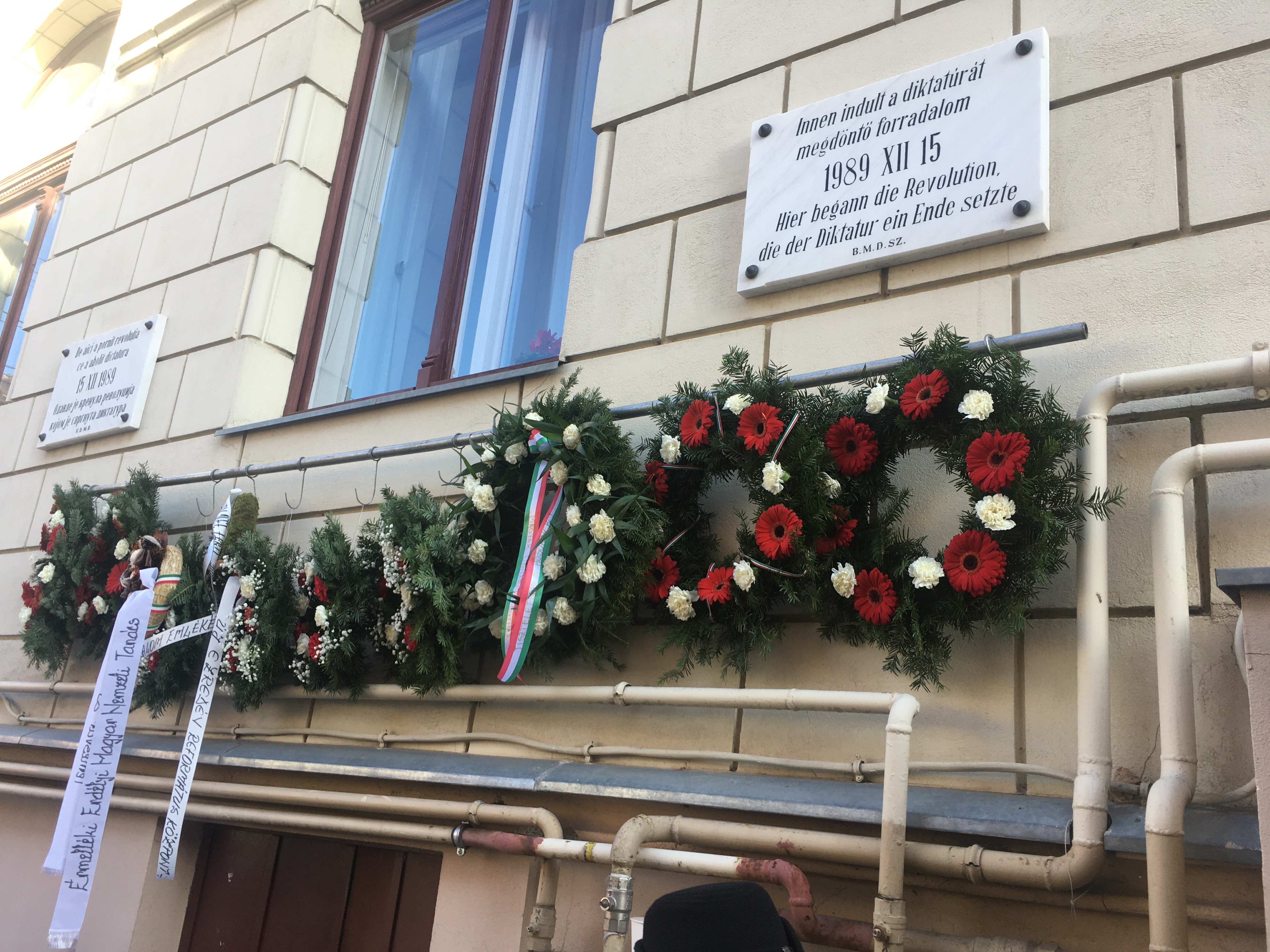
On December 15th 1989 Ceaucescu’s Secret Police – the cruel and greatly feared Securitate – entered the church and stripped the dissenting Pastor, László Tőkés, of his Minister’s gown and threw it on the floor.
People gathered – first the Hungarian Calvinists, then Romanian Baptists, then Catholics and Orthodox, and they formed a human chain, refusing to let them take their Minister.
On that fateful day, this was where the Romanian Revolution against Communism began.
Ceausescu had ruthlessly crushed all dissent – and had a special hatred for people with religious beliefs. He believed Communism had triumphed and could never be defeated.
But history has the last word and was rewritten at Timişoara thanks to the bravery of one man and some of his friends.
During the Service commemorating those events Tőkés said “We were created for freedom, not for tyranny; not for hatered and not for violence.”
Unlike the largely non violent “Velvet Revolutions” elsewhere in Central and Eastern Europe, Romanian Communists triggered violence to try and end reform.
Although they failed, the country’s politics is still dominated by Communists and their sympathisers – who have even removed the award given to László Tőkés in 2009 and have tried to airbrush him out of the history of the 1989 Revolution.
It is to the credit of Timişoara’s Romanian Mayor that he has publicly acknowledged Tőkés central and pivotal role – although the Romanian President has scandalously failed to even invite Tőkés to forthcoming commemorative events.
In 1989 millions of Romanians were waiting for someone to speak up – and they knew that if they waited for the West to intervene they would still be ruled by a Communist dictatorship today.
It was a system built on lies and waiting for a spark to light a flame.
Even when the days are darkest, and longest, light still comes.
And in 1989 – a year of wonders from Berlin to Prague, Warsaw to Timişoara, the light came – through individual acts of great courage.
How ironic that Ceaucescu and Stalin ( like the Kims of North Korea and Xi Jinping in China) had promised the elimination of religion, and in the end it was Communism which collapsed not religious faith.
Over the past few days it has been an honour to share a platform with László Tőkés – whom I first met in Transylvania in the months after the Timişoara Revolution.
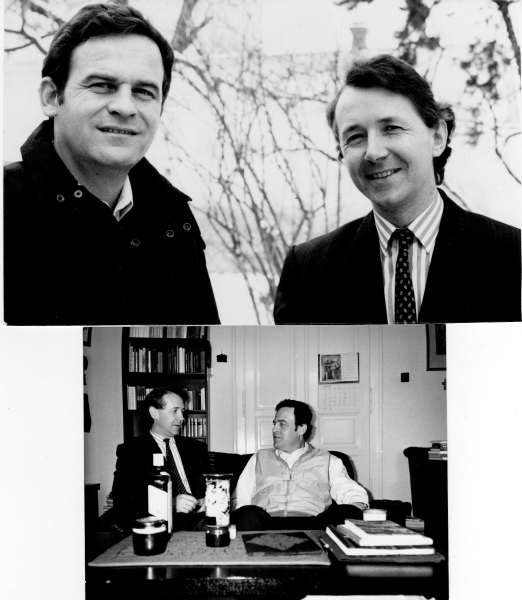
It was deeply moving to be present at a concert and performance of dance, beautifully commemorating those events.
There was also a brilliant theatre company from Cluj who performed “Unburied” which powerfully captured the insidious way in which friends and families were made to spy and report on one another – as happens on a massive scale using spies and surveillance equipment in Communist China today.
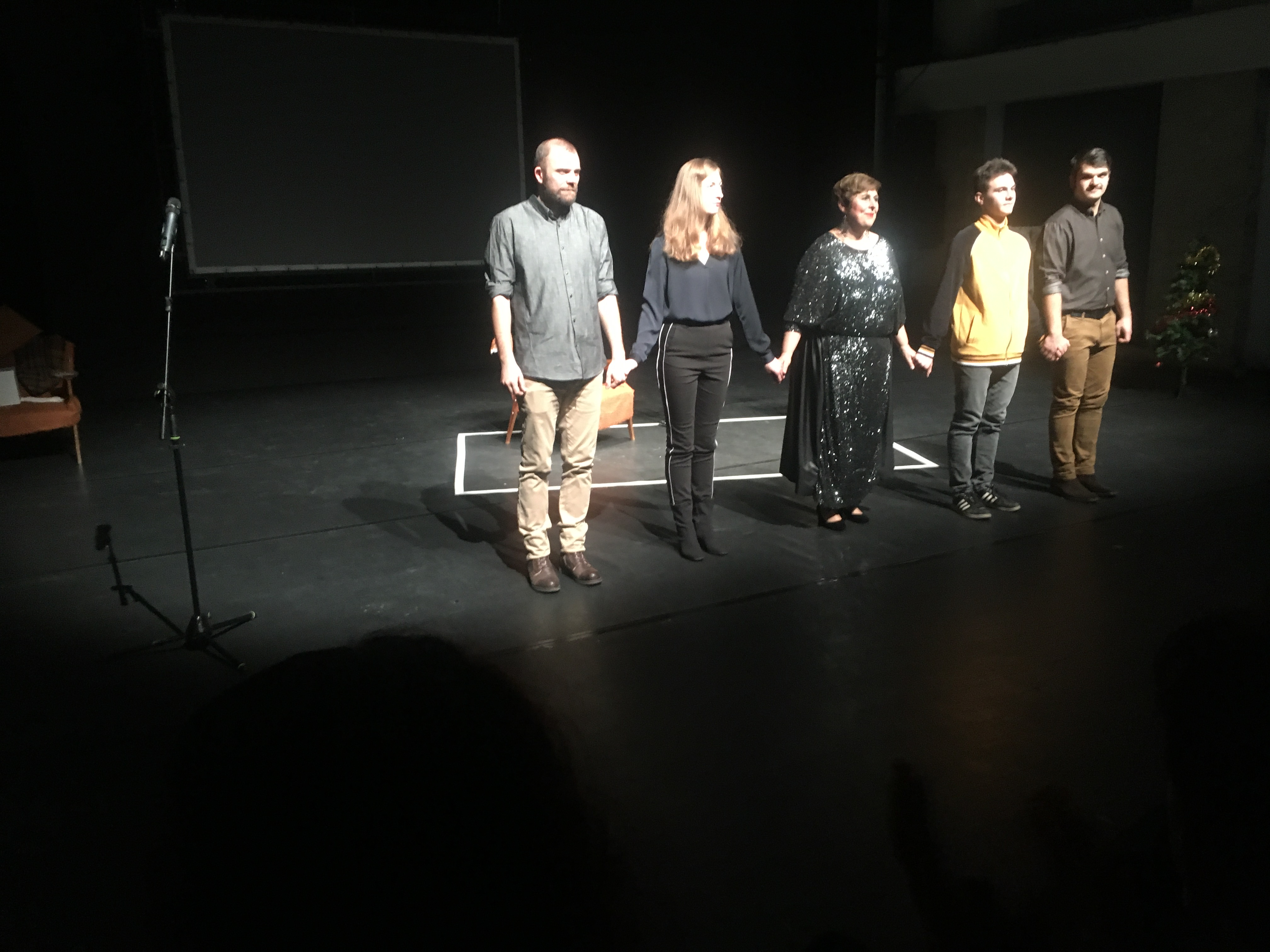
It was a great honour to be presented with a memorial sculpture symbolising the bravery of Timisoara’s martyrs for democracy.
It is a maquette of part of a huge sculpture to be erected in Timisoara. (https://en.wikipedia.org/wiki/L%C3%A1szl%C3%B3_T%C5%91k%C3%A9s)
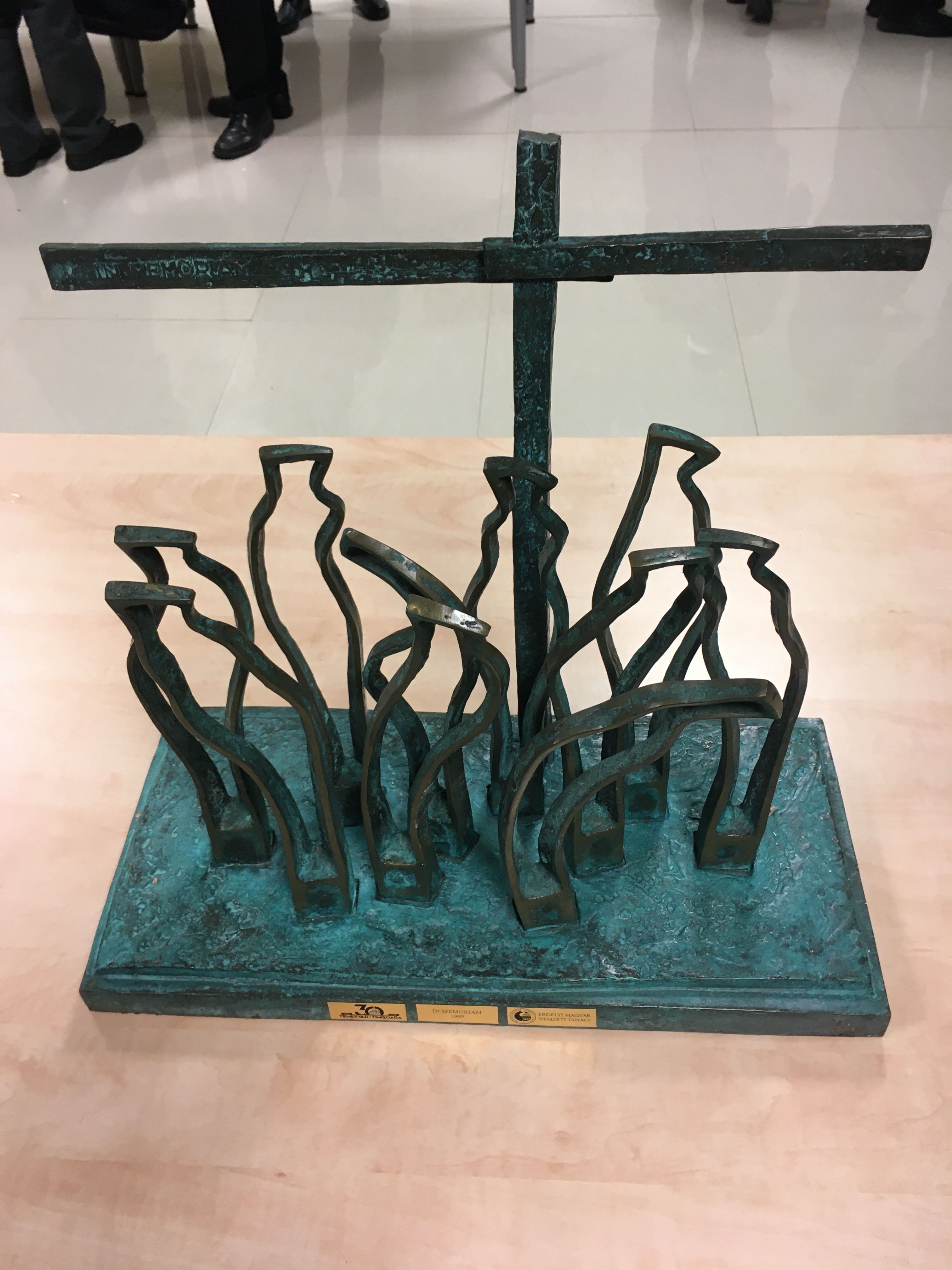
During my remarks I recalled the campaign I organised to free Georgie Calciu who spent 21 years in Communist jails and who I welcomed to Westminster when he was freed. I also told the stories of
Tertullian Langa
https://www.davidalton.net/2010/12/23/a-faith-worth-dying-for-is-worth-living-for/
and described my visits to the courageous Doina Cornea and Cardinal Todea.
(https://www.theguardian.com/news/2002/jul/02/guardianobituaries)
The Cardinal had spent long years in Communist prisons and Doina Conea helped forge an alliance of pro democracy Romanian dissidents (https://en.wikipedia.org/wiki/Doina_Cornea )
Neither Todea, nor any of the Romanian Catholic bishops collaborated with the communists.
Cardinal Todea spent years on the run – often hiding in barns and hay ricks – and years in prison. The Greek Catholic Church was outlawed and most of the hierarchy were executed.
But this isn’t just about nostalgia.
Tőkés knows that in every generation new challenges and old enemies will always rear their heads.
Tőkés says:”I see the anniversary of the Revolution not as a festive celebration or opportunity for hero worshipping, but a commitment to continue the process we started. Let us not be overcome by the other type of continuity, the continuity of communism.”
László Tőkés reminds us that the battle against those who would destroy democracy has to take place in every generation and that powerful ideologies are always waiting in the wings to use its strength of openness and inclusiveness as a weakness to manipulate it and usurp it.
We can so easily take our right to vote, to argue, to debate, to change our leaders and governments for granted – and so easily forget the price paid in lives, blood, and treasure to secure these democratic privileges.
These commemorative events in Timişoara should remind us never to take our freedom for granted.
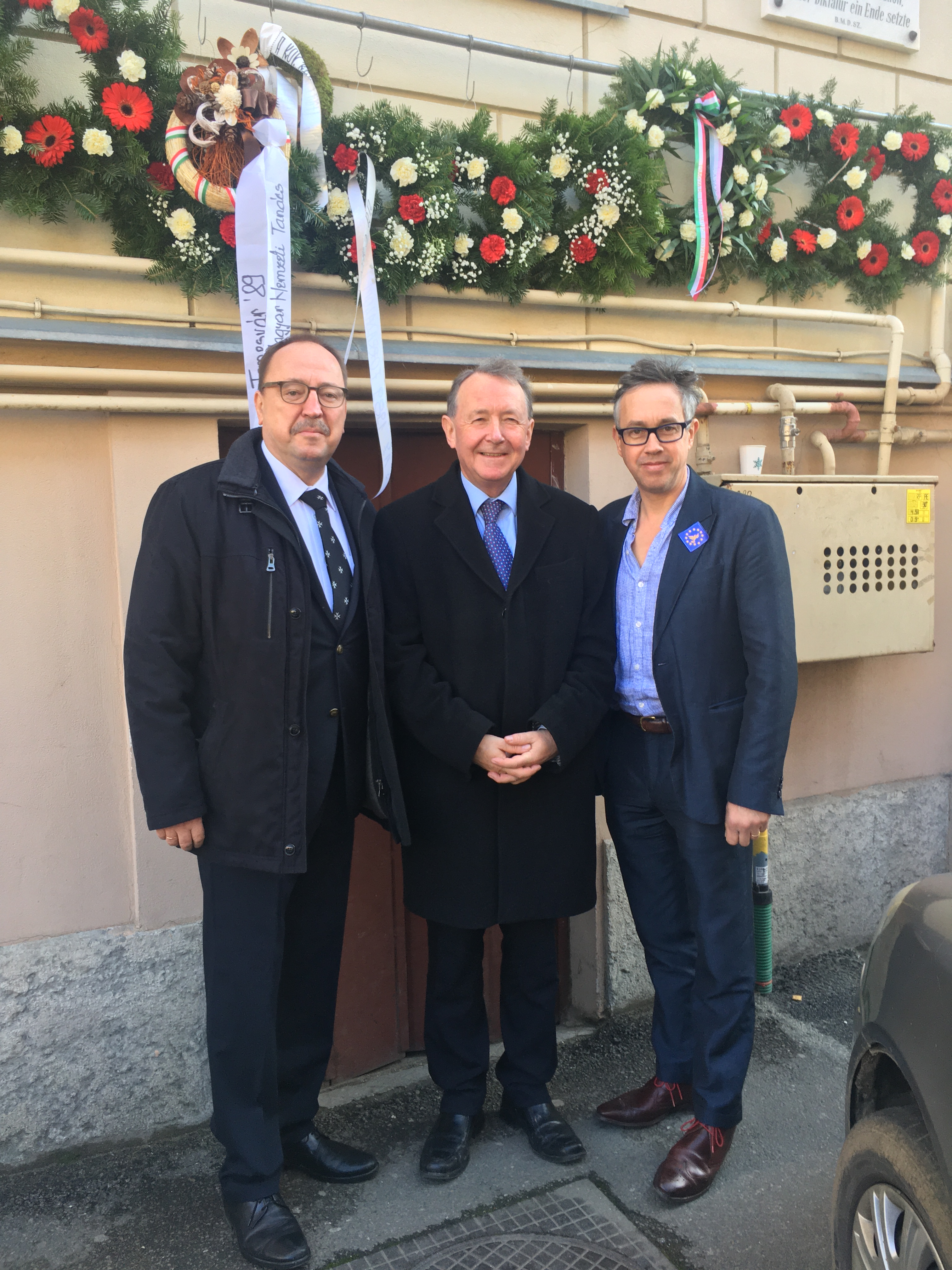
With Zsolt Nemeth chair of the Hungarian Parliament’s Foreign Affairs Committee and David Campanale

